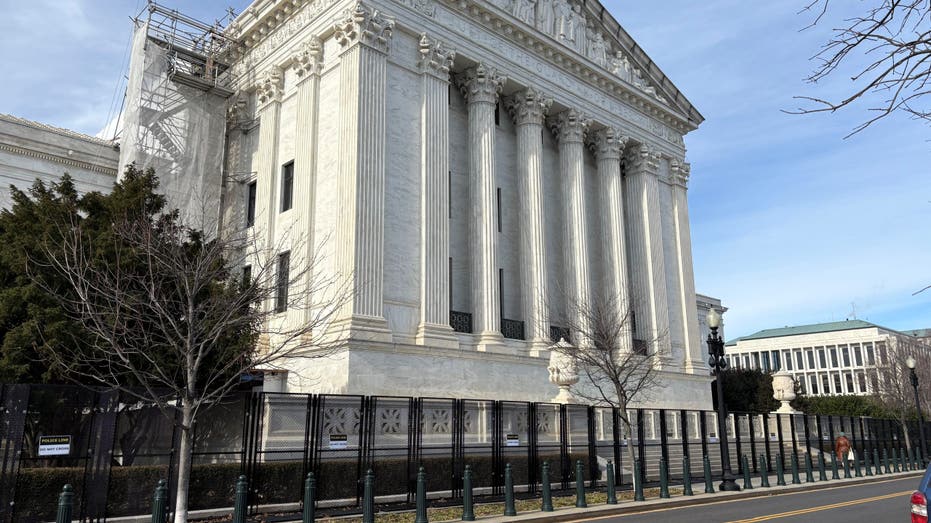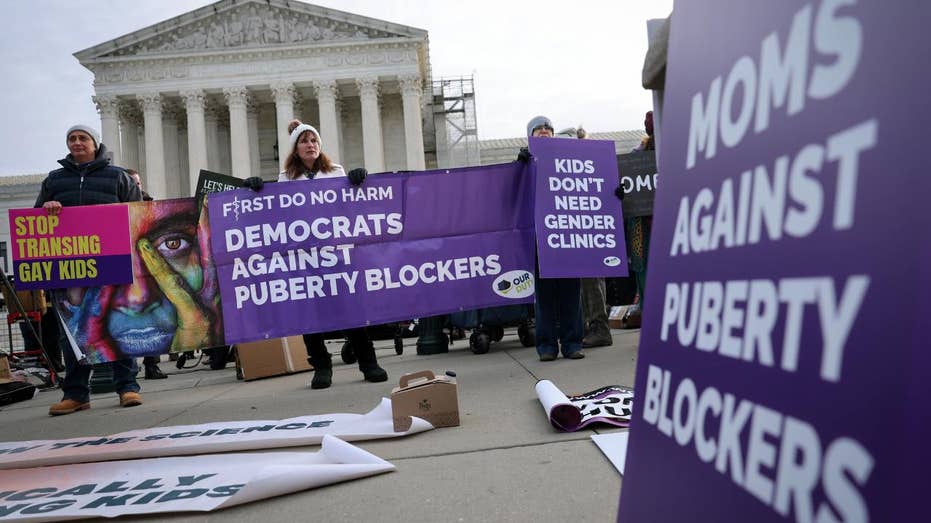SCOTUS to hear straight woman's discrimination case that could reshape employment law
The U.S. Supreme Court is poised to hear oral arguments Wednesday in a case involving an Ohio woman who claims she was unfairly discriminated against for being straight, while she watched her less-qualified LGBT colleagues in Ohio's youth corrections system climb the career ladder.
Marlean Ames, the woman at the center of the case, argued she was discriminated against because of her heterosexuality at the Ohio Department of Youth Services and contends that her demotion and pay cut constitutes a violation of Title VII of the Civil Rights Act of 1964. The decision of the case could have a significant impact on employment law.
Ames' case is before the Supreme Court after lower courts dismissed her claim in light of the precedent in the 1973 McDonnell Douglas Corp. v. Green decision. In that case, the high court created a three-step process for handling discrimination cases based on indirect evidence, with the first step being the key issue in the case.
SCOTUS TURNS DOWN ABORTION CLINIC BUFFER ZONE CHALLENGE, THOMAS SLAMS 'ABDICATION' OF DUTY
At this first step, plaintiffs in such cases must present enough evidence to make a basic case of discrimination. This requirement applies to all plaintiffs, whether they are from minority or majority groups.
Thus, Ames is challenging the legal standard used by lower courts, which requires her to provide additional "background circumstances" to "support the suspicion that the defendant is that unusual employer who discriminates against the majority." The majority in this case appears to be Ames, since she is straight.
Ames' attorney, Edward Gilbert, argued in a Feb. 7 court filing that this additional evidence burden is inappropriate and that discrimination should be assessed equally.
"Judges must actually treat plaintiffs differently, by first separating them into majority and minority groups, and then imposing a 'background circumstances' requirement on the former but not the latter," the filing read. "In other words, to enforce Title VII's broad rule of workplace equality, courts must apply the law unequally."
Ames started working at the Ohio Department of Youth Services in 2004 as an executive secretary, which oversees the rehabilitation of juvenile offenders. Since 2009, she was promoted several times, and by 2014, she was promoted to program administrator, according to the Supreme Court filing.
In 2017, Ames began reporting to a new supervisor, Ginine Trim, who is openly gay. During her 2018 performance review, Trim rated Ames as meeting expectations in most areas and exceeding them in one.
'THE PENDULUM IS SWINGING': EXPERTS WEIGH IN ON HISTORIC SCOTUS TRANSGENDER CASE AMID ORAL ARGUMENTS
However, in 2019, after Ames applied for a bureau chief position and did not get it, she was removed from her program administrator role, the court filing states. The department’s assistant director and HR head, both of whom are straight, offered her the choice to return to her previous job with a pay cut. Ames chose to remain with the department and was later promoted to a different program administrator position. The department then hired a gay woman for the bureau chief role Ames had wanted, and a gay man for the program administrator position she previously held.
After assuming Ames' role, the co-worker "expressed to Ames an ‘impatient attitude towards climbing the ranks within the Department,’ ‘claim[ed] that he could manipulate people to get what he wanted on the basis of being a gay man,’ and ‘acknowledge[d]; that he had ’been angling for Ames’s position for some time, stating in front of their coworkers that he wanted the PREA Administrator position,'" according to the filing.
In an amicus brief filed by Elizabeth Prelogar, the U.S. solicitor general under the Biden administration, the federal government supports Marlean Ames' argument. Prelogar said the "background circumstances" requirement imposed by the lower court has no basis in Title VII of the Civil Rights Act and goes against the Court's past rulings, which allow all plaintiffs to be judged by the same standards, SCOTUS Blog reported.
On the other hand, the Ohio Department of Youth Services disagrees with the idea that Ames was held to a higher standard because she is straight. The department argued that the "background circumstances" rule is not an additional burden on plaintiffs, but rather a "method of analysis" to examine cases like Ames' without creating a new legal precedent.
UNPACKING THE SUPREME COURT: WHY IT’S NOT JUST A MAGA STRONGHOLD, AND HOW THE JUSTICES REALLY VOTE
The Supreme Court will hear oral arguments in the case Wednesday morning, with a ruling expected by the end of June.
The case's hearing before the high court comes amid a second Trump administration that is working to dismantle Diversity, Equity and Inclusion (DEI) initiatives in the federal sector while pressuring private sectors to do the same.




